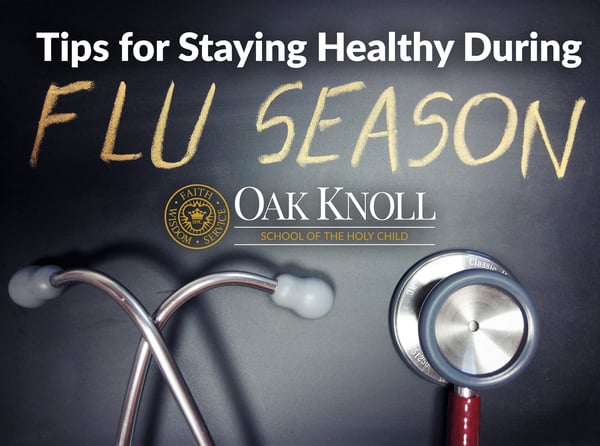There are so many things to look forward to at the start of fall – pumpkin spice-everything, sweatshirts, candy corn (if you’re into that), apple cider doughnuts, apple picking and so much more. But one thing no one looks forward to is sneezing, coughing, sore throats and fevers. That's right – the start of fall is also the unfortunate start of flu season.

The flu is a contagious respiratory illness caused by influenza viruses. Serious outcomes of the flu can result in hospitalization. For infants, the elderly and people with health conditions, it can even cause death. According to the Centers for Disease Control and Prevention, the best way to prevent the flu is by getting a flu vaccine each year. It is the most important step to protecting against influenza. As flu season typically runs between October and May each year, the CDC recommends getting the vaccine by the end of October.
Symptoms of the flu include the quick onset of fever, cough, sore throat, a runny or stuffy nose, body aches, headaches, chills and fatigue. Children may also experience vomiting and diarrhea.
Below are some everyday preventive actions to stop the spread of flu-causing germs so you stay healthy this fall:
- Try to avoid close contact with sick people;
- While sick, limit contact with others as much as possible, to keep from infecting them;
- If you or your child are sick, stay home until you are fever-free for 24 hours without the use of fever-reducing medications;
- Teach children to cover their nose and mouth with a tissue when sneezing or coughing. And, after using the tissue, to throw it in the trash and wash their hands;
- Wash your hands often with soap and water. If soap and water are not available, use an alcohol-based hand sanitizer;
- Avoid touching your eyes, nose and mouth;
- Clean and disinfect surfaces and objects that may be contaminated with germs;
- Drink plenty of fluids;
- Get enough sleep;
- Eat healthy foods, such as fruits and vegetables.
If you get sick with the flu, make sure to get treated with an antiviral medication from your doctor within 48 hours, especially if you have a high-risk health condition.




